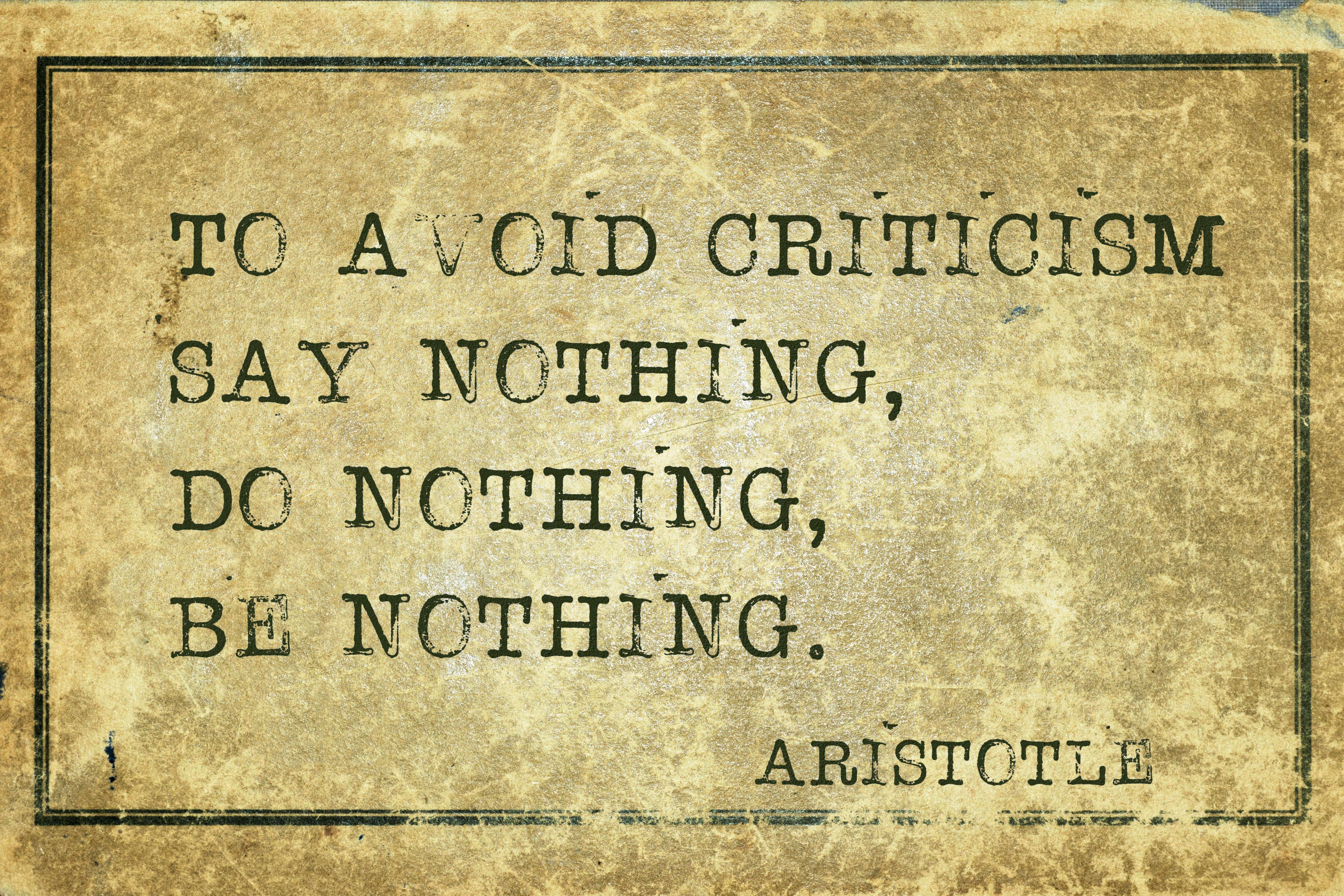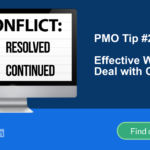Today I was really pleased to receive an email from somebody who recently became a MASTER level member. It was a simple, short email that put a smile on my face.
It said “Your site is great – used it to review for a contract PMO role (been on career break) and I got the job!”.
It was a great feeling to be able to share in the news and to have made a helpful contribution.
This was positive feedback.
In all walks of life, business and pleasure, everyone will encounter feedback. When the feedback is of a disapproving nature, this is known as criticism.
It is fair to say that everyone probably enjoys receiving positive feedback and dislikes negative criticism, especially if it is not delivered in a considerate way. Even worse when it is personal.
Change professionals such as project managers and PMO’s probably receive more criticism than the average person. The reason being that they are seen as the face of any change initiative and are the most accessible to users to vent their frustration.
It is not often you see the CEO in the daily firing line when implementing unpopular change!
How you deal with criticism, however fair or incorrect it may be, can make a big difference on how you perform and how your are perceived by friends and colleagues.
Receiving the positive feedback today made me think it would be helpful to share some thoughts on how to react when the feedback is not so positive!
Dealing with criticism
Do not react
You may have heard the saying “act in haste, repent at leisure”.
This is very wise. Just think how many times somebody has sent an email copying a large number of people making statements that reflect poorly on the progress of your project. Even worse the statements are completely incorrect!
How many times have you read the mail, felt the rage consume you and then hit respond and type a reply correcting every last point (for good measure banging the keys so hard and using words in capitals, underlined and bold to really hit home your point)?
I know I have and I am sure you have.
While this may feel great in the moment, all this does is risk igniting the situation. A response comes back countering the points (in capitals) and then the back and forth of mails just escalate with more senior people being copied on each reply.
While it is not easy. Pause, reflect and then think how best to respond. In most cases arranging a 1:1 meeting or picking up the phone will lead to a better outcome (obviously make sure you are calm before doing this).
If you have no choice and have to email, save the response as a draft. Then when you are calmer, ideally the following day, review and then send if it is still appropriate.
Not reacting also applies to your body language. Do not say the right words while your body and face are telling a different story!
Consider the other person
This may sound strange when you feel you have been attacked. However, as many people low live hectic, busy life’s, you do not know what else they may have on their mind.
They could have personal challenges, received some bad news, under unreasonable pressure from their manager, etc.
This can all lead to stress and result in them lashing out, especially if this is not normal behaviour.
I am not condoning this behaviour. However, being aware that this may be the reason for the criticism, it does help you not to react.
Consider the reasons
This is a connected point, when considering the other person you should think why they may have reacted in the way they did.
If you are executing a project that will result in a reduction of workforce due to automation, this will naturally create stress in some stakeholders and if they then criticise the project for not understanding the requirements, etc, this could be because they are concerned by the uncertainty that they may lose their job and income.
Be factual
I really like the statement “deal in the facts”.
In all of your engagements and communications, if you remain factual, this will reduce the chance for conflict and criticism.
This also means avoiding the temptation to embellish and use facts to help your own agenda. While we all will naturally position messages to meet our own agendas, you must know the line where you are starting to manipulate.
Be honest and fair
Integrity in a must in the change profession.
Very simply always be honest and fair with everyone. If you operate with integrity, over the long term you will be able to deal with most situations. In most cases, people will by less likely to criticise.
Never get personal
If you have been criticised at a personal level, do not respond with an equally personal attack.
Remove yourself from the situation and then, when you are calm, think how you want to respond.
Personal criticism is the most unacceptable form of criticism and, it usually hurts.
Remember, consider the other person. Perhaps they have something going on that has caused the outburst. If this is the case a good person will normally apologise.
If they don’t and depending on the nature of the criticism, you may even wish to escalate to your manager or HR. Again, make sure this is done using the facts.
Summary
At some point everyone will receive criticism, in the change profession this may be on many occasions.
So be prepared and know how you will deal with the criticism:
- Do not react
- Consider the other person
- Consider the reasons
- Be factual
- Be honest and fair
- Never get personal
There is a great book that I read a while ago that helps to understand how we react to stressful situations called the Chimp Paradox. Well worth a read.






